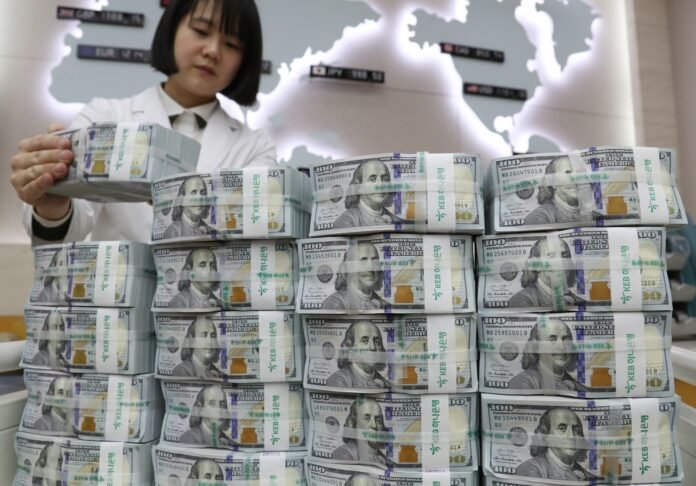South Korean financial workers walked off the job Friday in a one-day strike, pushing for better pay and a shorter workweek. But turnout was low, and daily banking carried on mostly as usual, according to officials.
The Korea Financial Industry Union, or KFIU, kicked off the action to demand a 3.9% wage increase and a 4 1/2-day workweek. Union leaders called it a “warning strike,” hinting at bigger moves if talks stall.
Management countered with just a 2.4% raise and showed little enthusiasm for cutting hours. The KFIU hoped around 80,000 of its 100,000 members would join, but far fewer did.
A bank spokesperson noted the push lacks broad backing, even from fellow union members. “Public support is weak too, and nearly every branch is running smoothly without issues,” the official said.
Bank employees in South Korea already enjoy solid paychecks compared to other sectors. Last year, workers at the country’s top five banks averaged nearly 120 million won, or about $85,000 annually.
In other South Korea financial news, foreign currency deposits jumped to their highest level in more than 2 1/2 years last month, fueled by companies parking more cash overseas.
Bank of Korea data released Friday shows resident-held foreign currency deposits hit $107.64 billion by the end of August, a $2.49 billion rise from July. That’s the biggest total since January 2023, when it reached $109.25 billion.
Residents here include South Korean citizens, foreigners living in the country over six months, and foreign firms. The figures skip interbank deposits.
Stay informed on all the latest news, real-time breaking news updates, and follow all the important headlines in world News on Latest NewsX. Follow us on social media Facebook, Twitter(X), Gettr and subscribe our Youtube Channel.



